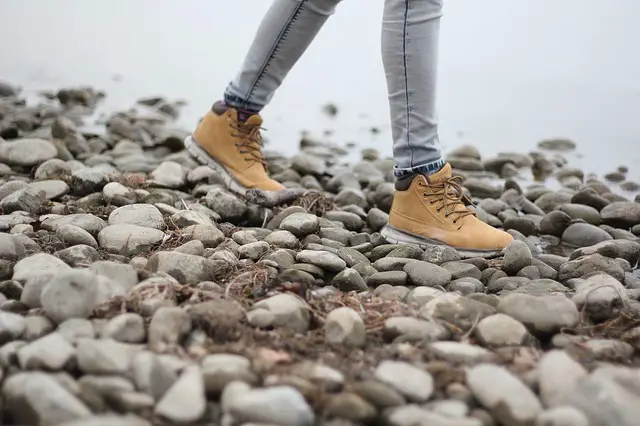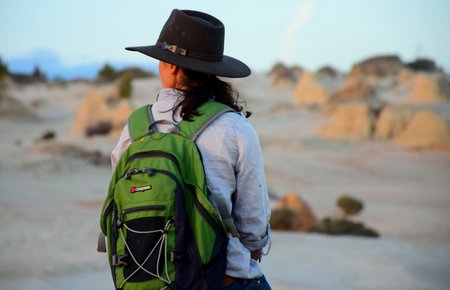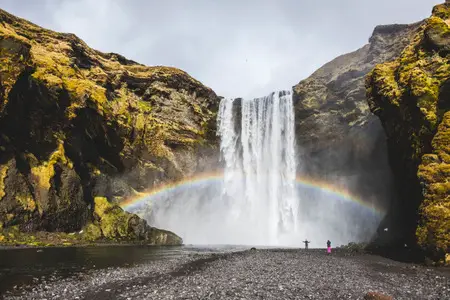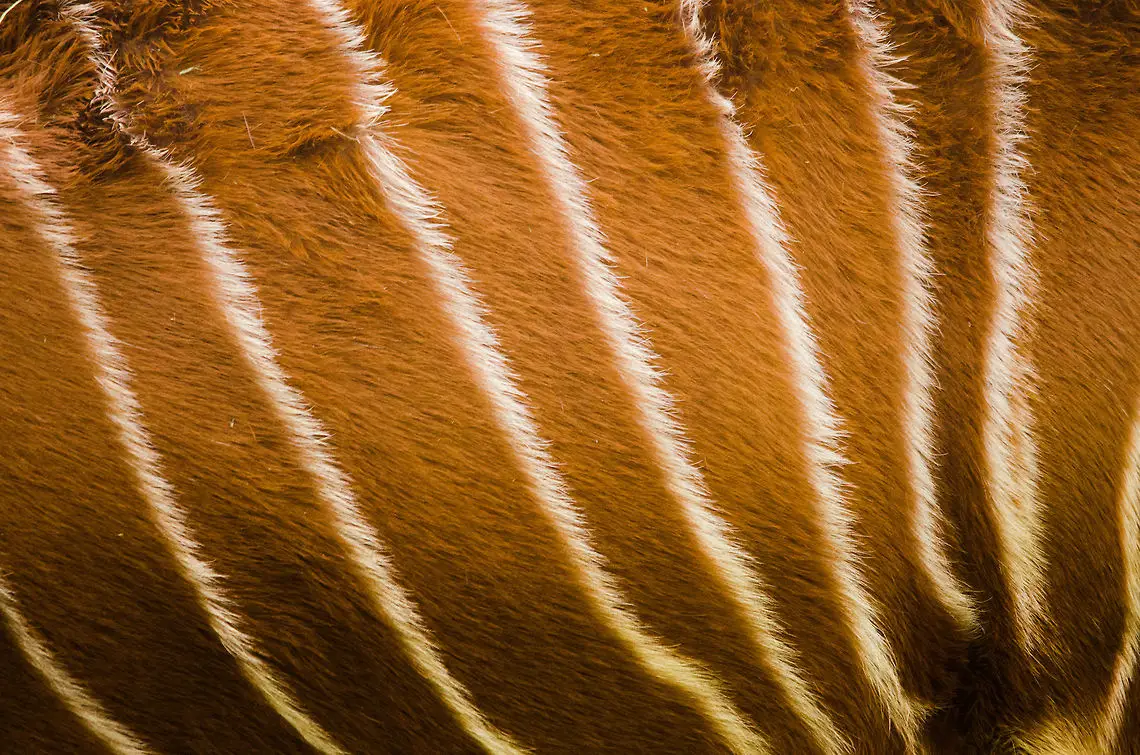Hiking For Beginners: 7 Essential Tips
Hiking is an excellent low impact workout which offers immense benefits for both your physical and mental health. It is an essential outdoor activity that can dramatically improve your health and well-being by reducing anxiety, depression and stopping the development of ailments such as osteoporosis. Hiking is much more thrilling and rewarding than using a treadmill or walking along paved paths. Hiking allows you to discover incredible landscapes, wildlife, and constantly changing scenery that makes exercising less of a chore and something you will actual look forward to.
If you engage in regular hiking already, then you will agree that it’s one of the best ways to see the real world and the nature around you. Getting out in nature allows us to remove the many distractions of our daily lives and slows life down a bit so we can focus on our thoughts.
While hiking through some regions can be physically challenging, there are almost always trails or reserves that are suitable to people of any fitness level. Building up the will power to do exercise can be a challenge for many, but a hike in the wild may just provide you with the inspiration you need to get your heart rate up on a regular basis. Whether you want to start climbing mountains or want to take up simple birdwatching, there are a number of helpful tips to get you started. Here are 7 essential tips to help beginner hikers get the most out of their hiking experiences.


Selecting the Right Footwear
Ask any renowned hiking expert and they will tell you that successful hiking starts by having the right footwear. There is no one size fits all shoe design that’s perfect for hiking, but there are certain things you should look for when selecting a good pair of hiking shoes. One of the biggest things that will decide what type of shoe you should purchase is what type of terrain and natural elements you plan on hiking through. Hiking through wetlands such as Florida’s Everglades will require different footwear than hiking in the Rocky Mountains for example.
Above all else, you want to make sure your footwear is both comfortable to wear for long periods and can hold up to whatever elements you put them through. If you plan on only doing shorter basic hikes through easy terrain, you may not need to purchase a high-end pair of hiking boots that cost hundreds of dollars.
While the right footwear varies from trail to trail, a few basic features are often essential. You should opt for a hiking shoe or boot that offers good ankle support and footwear that’s waterproof is essential to keep your feet dry. If you plan on hiking in areas with venomous snakes or areas with sharp plants such as cactuses, a more rugged hiking boot with thick soles and padding may be essential. Whichever type of footwear you decide on, ensure you break in your new hiking shoes with shorter walks before tackling an all day hiking adventure to avoid painful blisters.
Another thing you may wish to consider are ethical standards of the company making the hiking boot – many hikers have started preferring vegan hiking boots over harsh leather products where their production has a higher impact on the environment.

Packing the Right Equipment
Often, hiking isn’t your average walk in the park and you may need to put a bit of thought into packing the right equipment for your hiking adventure. Because hiking trails are often found in more remote locations, it’s vital to take items that you may need with you to ensure your safety and survival. Always pack a first-aid kit, wear the appropriate clothing, research local dangers like wildlife, prepare a proper shelter, and carry essential medications.
There are also specific items you’ll need that will depend on what activity you plan on doing. For many, hiking isn’t just about walking from point A to point B, but instead is just part of a larger purpose whether it be wildlife photography, hunting, fishing, camping, or some type of outdoor sport. If you’re wondering what equipment you’ll need for certain outdoor activities, native compass can help you research the latest and greatest equipment and gadgets you’ll need for nearly any outdoor activity. Research the latest hiking poles, hunting bows, fishing gear, and outdoor survival equipment.


Training for Hiking
While you don’t need to train like you’re trying out for the Olympics, as a beginner hiker you will fatigue much easier and more quickly if you don’t prepare yourself with a bit of basic training. If you plan to tackle foreign terrain you’re not used to without getting your body ready first, you run the risk of injury or at the very least a bit of pain from sore muscles.
If the thought of joining a gym is a bit too daunting for you, start by practicing some yoga at home to increase your flexibility and gain muscle strength. Training doesn’t have to be running miles a day or lifting heavy weights. The idea is to gradually build your body up to being able to cope with the extra physical demands hiking brings on. You may wish to focus on building leg and foot muscles first since that is the part of your body that hiking places the greatest amount of strain on. Train as much as you can and you’ll eventually see the results and gain the benefits. Move on to building up your core muscles, especially if you plan on hiking with a heavy daypack for longer hikes later on.


Hiking is Often More Mental than Physical
While it’s important to get yourself physically for hiking, it’s good to remember that hiking is just as much mental as it is physical. It is important to stay positive with your inner self and not compare your physical ability to others. Choose hiking adventures and outdoor activities that give you pleasure and don’t try to engage in activities to simply please or prove anything to others.
Some hikers need to conquer summits like Everest to feel a sense of achievement, or famous pilgrimages like the Camino Português, Porto – Santiago de Compostela, but that doesn’t make your hike around a lake any less of a success. Hiking is all about spending time with yourself and your thoughts or with like-minded people you care about. Nature will never judge you and doesn’t treat professional mountain climbers any differently than beginner hikers.
Even physically fit people can easily break down when they aren’t equipped with a strong mind. That is why even the strongest people sometimes don’t do well in survival situations, while less fit people strive. A strong intelligent mind will be able to get you out of a number of situations you may face while hiking and staying optimistic will make any hiking adventure a positive one.

Listen to your Own Body
You will do well to constantly remind yourself that hiking is not a competitive sport. It’s not about the first person to reach the campground or the first person to reach the summit. There will always be someone faster or more able than you. Never push yourself too far, especially when hiking by yourself where you have nobody to come to your assistance should you need it.
If you need to take breaks, take them. If that uphill route is to daunting, stick to the much more level base circuit. Listen to your own body and don’t push it too hard or you may get injured. When hiking in a group, be sure to be honest with others and let them know what your abilities are. A group is only as strong as its weakest link and you don’t want to jeopardize the safety or enjoyment of yourself or anyone in the group.

Staying Healthy
Staying well fed and hydrated is vital for hiking. Food equals energy, and many hikes often require a lot of it. Eating healthy and getting the right nutrients will allow your body to successfully complete hiking and other outdoor activities. Because outdoor activities often force you to use up more energy and water than you’re used to, it’s important to pack more food and water than you think you will consume.
You want to pack foods that provide the most amount of nutrients, protein, and energy while not being too heavy to weigh your packs down. We highly recommend items like nuts and dried fruits because they have a lot of energy for their weight.
Carry plenty of water to avoid dehydration or heat stroke, or at least make sure fresh water will be readily available along your chosen hiking trail. If you’re unsure about the availability of potable water, carry a water purification system or tablets.


Not Getting Lost
First time hikers always ask the question “What if I get lost?”. With the technology available to hikers today, there are few excuses for hikers to get lost. Prior planning prevents piss poor performance they say, so make sure you read up on where you’re going and carry local maps with you. There are also a number of helpful phone apps available that will pretty much tell you where you are at all times, where you’re heading, and where you have been. In addition to GPS apps for your phone that sometimes don’t even require data usage, you can also purchase a GPS device that will provide you with many more features designed to never get you lost.
At the very least, carry a simple lightweight compass and make yourself aware of your surroundings, taking note of landmarks as you hike. If you can’t find something familiar, then retrace your steps until you get to the point where things look familiar. It’s wrong to proceed forward with the hope that you can get back on track eventually. This often only end ups complicating things more and you may find yourself further from where you wish to be.
Always carry a cell phone in case you need to call for help and tell others where you plan to be hiking and for how long. Having several safeguards in place will ensure your hiking adventure always remains a positive one.






















November 5, 2019
What a great post! I love hiking and now trying to get my friend to join in on the fun. This will be the perfect piece for him to read.
November 17, 2019
Hiking is great for mental health and relieving anxiety. It gets your mind off it and makes you feel more “present”, so you are focusing on your surroundings, rather than how you are feeling. There’s nothing better than some fresh air and nature to help improve your mood.
These are some great tips for beginner hikers and i’ll be sure to keep them in mind! Thanks for sharing a great article.